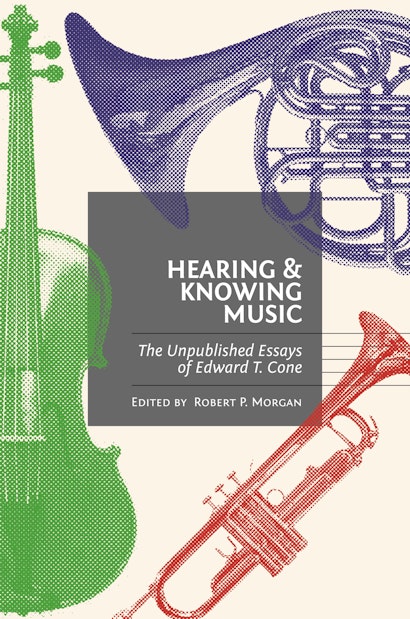Edward T. Cone was one of the most important and influential music critics of the twentieth century. He was also a master lecturer skilled at conveying his ideas to broad audiences. Hearing and Knowing Music collects fourteen essays that Cone gave as talks in his later years and that were left unpublished at his death. Edited and introduced by Robert Morgan, these essays cover a broad range of topics, including music’s position in culture, musical aesthetics, the significance of opera as an art, setting text to music, the nature of twentieth-century harmony and form, and the practice of musical analysis. Fully matching the quality and style of Cone’s published writings, these essays mark a critical addition to his work, developing new ideas, such as the composer as critic; clarifying and modifying older positions, especially regarding opera and the nature of sung utterance; and adding new and often unexpected insights on composers and ideas previously discussed by Cone. In addition, there are essays, such as one on Debussy, that lead Cone into areas he had not previously examined. Hearing and Knowing Music represents the final testament of one of our most important writers on music.
Edward T. Cone (1917-2004) was professor emeritus of music at Princeton University, where he taught from 1947 until his retirement in 1985. He wrote two of the twentieth century's most influential books about Western music, Musical Forms and Musical Performance (Norton) and The Composer's Voice. Robert P. Morgan is professor emeritus of music at Yale University and the editor of Cone's Music: A View from Delft, a collection of previously published essays.
"While eclectic in its subject matter, this invaluable collection of Cone's final essays offers a great deal to readers. Whether the essays arguably reflect autumnal or emerging ideas, Cone's astonishing clarity of exposition and openness, his intellectual reach, and continual self-reflexivity . . . almost make his writing seem timeless in its appeal for musicians and music scholars across the disciplinary spectrum."—David Trippett, Fontes Artis Musicae
"As a critic, Edward Cone drew the best from his Princeton mentors Roger Sessions, Richard Blackmur of the New Criticism, and the no less legendary musicologist Oliver Strunk. His work—elegant and profound, self-aware but never self-important, resolutely undogmatic—is above all true to what can only be called an exquisite ear. Few have written better on Schubert, Berlioz, or Stravinsky, and none better on the crux of composer, performer, and listener he saw as axiomatic to musical experience. We are indebted indeed to Robert Morgan for this large, dazzling new trove of Cone's writings."—Joseph Kerman, professor emeritus, University of California, Berkeley
"This collection is a treasure. Like Edward T. Cone's other extraordinary writings, these unpublished essays offer a wealth of critical and analytical thought on some of the central composers and compositions of classical music. What emerges, beyond the many wonderful insights about individual compositions, is not a theory but the persistent exemplification of Cone's style of analysis, one that balances listening and reflection with particular deftness."—Fred Everett Maus, University of Virginia
"This book underlines the values of an outstanding pioneer in the field of musical-critical discourse at a time when the historical legitimacy of those values benefits from being reinforced. Edward T. Cone was undeniably a master of the lecture, and his trademark lucidity and good humor are apparent everywhere here."—Arnold Whittall, author of Exploring Twentieth-Century Music

